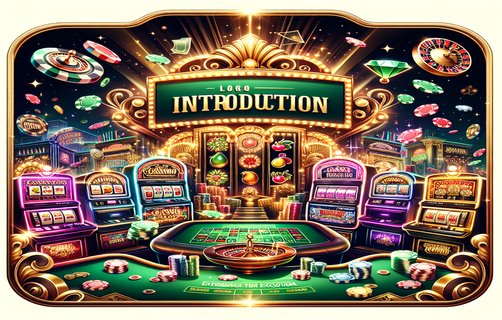Mastering Betting Strategies in Rummy: An In-Depth Analysis
रम्मी में दांव लगाने की रणनीतियाँ: एक विस्तृत विश्लेषण

In the world of Rummy, understanding the nuances of betting can significantly impact a player's success. One of the key strategies involves calling big bluffs. This is where a player attempts to push their opponents into making mistaken calls, often leading to substantial gains if executed correctly. It's essential to recognize the psychological aspect of the game; calling a bluff can put immense pressure on your opponent, forcing them to reconsider their hand and, ultimately, their bets.
Next, the flop bluff catch plays a crucial role. When you believe an opponent is bluffing during the flop, it’s vital to assess the board and your cards before making a move. This phase presents an opportunity to gather information about your opponent's betting pattern and their confidence in their hand. A strong read can lead to a significant advantage in the later betting rounds.
Winning chances are not merely a factor of odds; they involve deep probability analysis and understanding the dynamics of the game. As the betting progresses, players need to continually calculate the likelihood of their hand winning against that of their opponents. This involves considering community cards and the potential hands that opponents may be holding. Players should not shy away from adjusting their strategies based on these calculations.
The confidence of opponents can also sway the outcome of a game. Players who exude confidence can often intimidate lesser experienced opponents, leading them to fold good hands. Conversely, appearing uncertain can lead to more aggressive play from others. Recognizing and exploiting your opponents' psychological states can thus inform your betting decisions and overall strategy.

Risk analysis is an integral part of betting in Rummy. Players must evaluate whether to fold, call, or raise based on the perceived risk versus reward. Factors to consider include the strength of your current hand, the betting actions of opponents, and the probabilities of achieving a favorable outcome based on the cards left in play.
Finally, achieving a balanced post-flop call strategy can differentiate skilled players from novices. A balanced approach involves varying your playstyle to keep opponents guessing — sometimes bluffing, sometimes playing strong hands aggressively. It helps in maintaining an unpredictable strategy that can challenge opponents at every stage of the game.
In conclusion, the art of betting in Rummy revolves around psychological strategies, risk management, and probability calculations. Understanding and mastering these aspects can significantly elevate a player’s game, enabling them to navigate the complexities of betting with finesse and confidence.
रम्मी की दुनिया में, दांव लगाने की बारीकियों को समझना एक खिलाड़ी की सफलता को महत्वपूर्ण रूप से प्रभावित कर सकता है। एक प्रमुख रणनीति में बड़े ब्लफ को कॉल करना शामिल है। यह तब होता है जब एक खिलाड़ी अपने विरोधियों को गलत कॉल करने के लिए मजबूर करने की कोशिश करता है, जो अगर सही ढंग से किया जाए तो महत्वपूर्ण लाभ का कारण बन सकता है। गेम के मनोवैज्ञानिक पहलू को पहचानना आवश्यक है; एक ब्लफ का कॉल करना आपके विरोधी पर भारी दबाव डाल सकता है, जिससे उन्हें अपनी हाथ और अंततः अपने दांव पर पुनर्विचार करने के लिए मजबूर होना पड़ सकता है।
अगला, फ्लॉप ब्लफ कैच एक महत्वपूर्ण भूमिका निभाता है। जब आप मानते हैं कि कोई विरोधी फ्लॉप के दौरान ब्लफ कर रहा है, तो एक कदम उठाने से पहले बोर्ड और अपने कार्ड का आकलन करना आवश्यक है। यह चरण आपके विरोधी के दांव लगाने के पैटर्न और उनके हाथ में आत्मविश्वास के बारे में जानकारी इकट्ठा करने का एक अवसर प्रदान करता है। एक मजबूत पढ़ाई बाद के दांव के राउंड में महत्वपूर्ण लाभ की ओर ले जा सकती है।
जीतने के मौके केवल संभावनाओं का एक कारक नहीं होते; इसमें गहन संभाव्यता विश्लेषण और गेम के गतिशीलता को समझना शामिल होता है। जैसे-जैसे दांव बढ़ते हैं, खिलाड़ियों को लगातार अपने हाथ के जीतने की संभावना की गणना करने की आवश्यकता होती है। इसके लिए सामुदायिक कार्डों और विरोधियों के हाथों में संभावित हाथों पर विचार करना शामिल है। खिलाड़ियों को इन गणनाओं के आधार पर अपनी रणनीतियों को समायोजित करने से नहीं कतराना चाहिए।
विरोधियों के आत्मविश्वास का स्तर भी खेल के परिणाम को प्रभावित कर सकता है। आत्मविश्वास से भरे खिलाड़ी अक्सर कम अनुभवी विरोधियों को intimidate कर सकते हैं, जिससे उन्हें अच्छे हाथों को छोड़ने के लिए मजबूर होना पड़ता है। इसके विपरीत, असमंजस में दिखने से दूसरों के द्वारा अधिक आक्रामक खेल की संभावना होती है। इसलिए आपके विरोधियों के मनोवैज्ञानिक दशा को पहचानना और इसका फायदा उठाना आपके दांव लगाने के फैसलों और समग्र रणनीति को सूचित कर सकता है।
जोखिम विश्लेषण रम्मी में दांव लगाने का एक अभिन्न हिस्सा है। खिलाड़ियों को यह आंकलन करने की आवश्यकता होती है कि उन्हें किस समय फोल्ड, कॉल या रेज करना चाहिए, जो देखी गई जोखिम बनाम पुरस्कार पर आधारित है। विचार करने के लिए कारक में आपके वर्तमान हाथ की ताकत, विरोधियों की दांव लगाने की क्रियाएँ, और खेलने के लिए बचे हुए कार्डों के आधार पर अनुकूल परिणाम प्राप्त करने की संभावनाएँ शामिल हैं।
अंत में, एक संतुलित पोस्ट-फ्लॉप कॉल रणनीति हासिल करना कुशल खिलाड़ियों को नवशिखरों से अलग कर सकता है। एक संतुलित दृष्टिकोण में आपके खेल के तरीके को भिन्न करना शामिल है ताकि विरोधियों को अनुमान लगाने में मदद मिले - कभी-कभी ब्लफ करना, कभी-कभी मजबूत हाथों को आक्रामक तरीके से खेलना। यह एक अप्रत्याशित रणनीति बनाए रखने में मदद करता है जो खेल के हर चरण में विरोधियों को चुनौती दे सकती है।
निष्कर्ष में, रम्मी में दांव लगाने की कला मनोवैज्ञानिक रणनीतियों, जोखिम प्रबंधन और संभाव्यता गणनाओं के चारों ओर घूमती है। इन पहलुओं को समझना और उन पर महारत हासिल करना एक खिलाड़ी के खेल को महत्वपूर्ण रूप से बढ़ा सकता है, जिससे उन्हें आत्मविश्वास और कुशलता से दांव लगाने की जटिलताओं को नेविगेट करने की अनुमति मिलती है।

comments
CardShark
This analysis really opened my eyes to the importance of psychology in Rummy betting! Great insights.
RummyAddict
Loved the section on bluff-catching strategies! I'll definitely apply these tactics in my next game.
Strategist44
Risk analysis is everything! It’s crucial to weigh your options wisely.
FinessePlayer
Balanced post-flop calls can really confuse opponents. Time to mix up my gameplay.
BluffMaster
Interesting take on opponent confidence. I never thought about it that way!
GamblerGuru
Excellent article! Betting in Rummy requires a much deeper understanding than I realized.